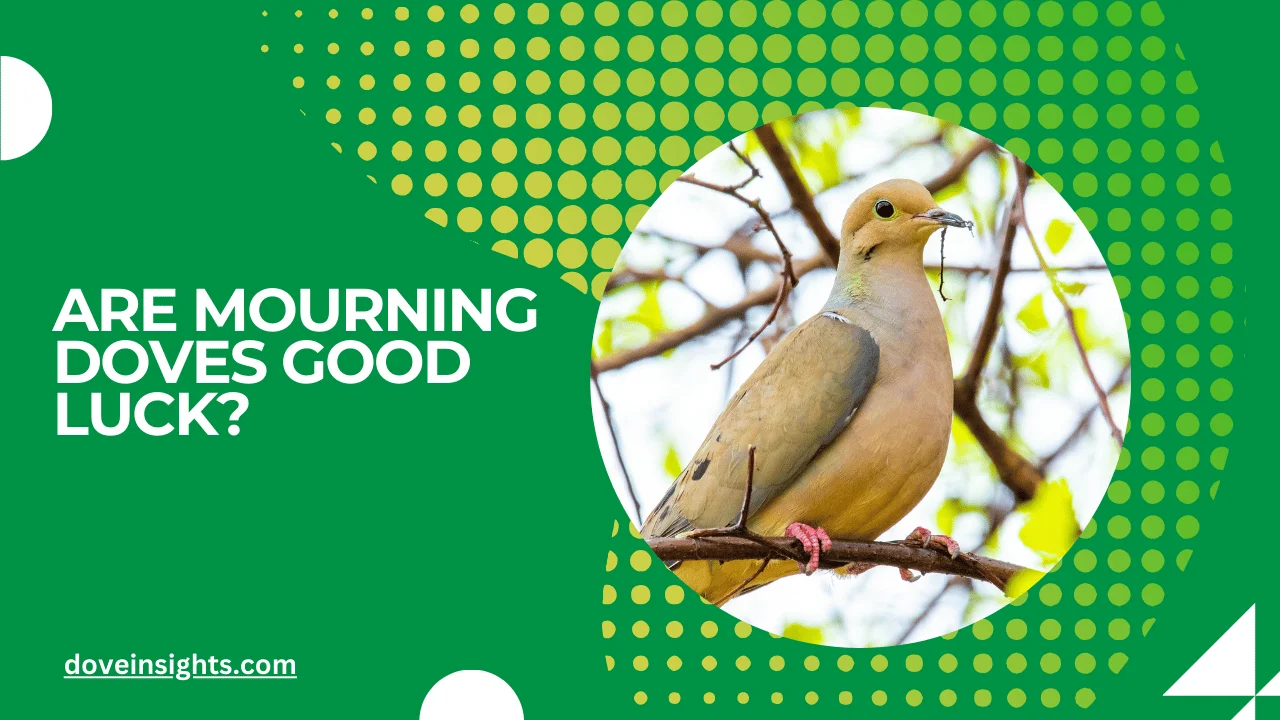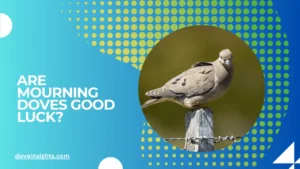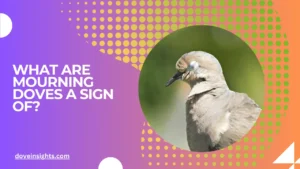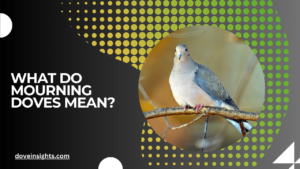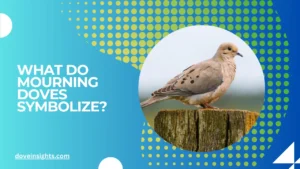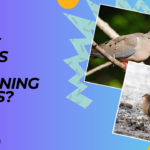Have you ever encountered a mourning dove perched on your window or flying gracefully across your backyard?
The gentle cooing, soft colors, and peaceful presence of these birds evoke a sense of calm. But beyond their beauty, mourning doves have long been associated with good luck and spiritual symbolism.
From ancient cultures to modern-day beliefs, the mourning dove has earned a reputation as a messenger of peace, love, and even fortune. But is this just a romanticized notion, or is there some truth behind the idea that mourning doves bring good luck?
In this article, we explore the symbolism, cultural beliefs, and superstitions surrounding mourning doves to uncover whether they truly hold the key to good fortune.
Contents
- 1 Scientific Perspective: What Do Mourning Doves Represent in Nature?
- 2 Modern-Day Beliefs: Mourning Doves as Signs of Luck in Contemporary Society
- 3 FAQ’s
- 3.0.1 Are mourning doves a sign of good luck?
- 3.0.2 What do mourning doves symbolize in different cultures?
- 3.0.3 Do mourning doves bring good fortune to people?
- 3.0.4 Can mourning doves be a sign of new beginnings?
- 3.0.5 Are mourning doves associated with love and relationships?
- 3.0.6 What does it mean when you see a mourning dove?
Mourning Doves in Cultural Symbolism: A Tradition of Good Fortune
For centuries, mourning doves have been symbols of peace, love, and spiritual connection across various cultures. In Native American tradition, the dove is often seen as a messenger that carries good news or provides comfort to those in need.
The gentle coo of the mourning dove is said to symbolize hope and healing, making it a powerful emblem in times of grief or change.
In other cultures, the dove’s association with peace also ties it to good fortune. For example, in Christianity, the dove is considered a symbol of the Holy Spirit, embodying purity and divine blessing.
Across the world, people often view the appearance of a mourning dove as a sign of positive change, an omen that new opportunities or a shift in personal luck are on the horizon.
This long-standing tradition of the mourning dove as a symbol of hope and blessing has made it a powerful image in the realms of spirituality and luck.
When mourning doves appear, many people interpret their presence as a sign of divine intervention or a moment to reflect on one’s path toward happiness.
Mourning Doves in Folklore: Are They Omens of Good Luck?
In folklore, birds have often been seen as messengers between the material world and the spiritual realm.
The mourning dove, in particular, has a unique place in these beliefs. Across various cultures, encountering a mourning dove is often associated with good omens. For instance, in some parts of Europe, people believe that if a mourning dove appears near your home, it is a sign that you will soon receive unexpected good news or positive change.
In other traditions, the mourning dove is thought to bring blessings to those who encounter it. Some cultures even associate the bird with the idea of eternal love and lasting happiness.
It is not uncommon to see the mourning dove in weddings, where its symbolism of love and peace reinforces the hopeful beginnings of a new life together.
These cultural beliefs add a layer of mystical charm to the idea that mourning doves bring good fortune. Whether they are seen as spiritual guides or simple omens of change, the presence of a mourning dove often invites a sense of anticipation for something better to come.
Scientific Perspective: What Do Mourning Doves Represent in Nature?
While many people see mourning doves as symbols of luck, it’s important to examine what these birds represent in the natural world. Mourning doves are highly adaptable creatures, known for their ability to thrive in a variety of habitats, from dense forests to suburban backyards.
Their gentle nature and serene appearance make them easy to romanticize, but in nature, their survival is tied to keen instincts and resourcefulness.
Interestingly, mourning doves also have a unique role in nature’s balance.
They are seed dispersers, helping to propagate plant species and contribute to the health of ecosystems. Their gentle presence in a garden or field can be seen as a sign of balance and renewal, further reinforcing the idea that they bring good energy to their surroundings.
From a scientific perspective, mourning doves may not carry the mystical power that folklore attributes to them, but their role in the environment can certainly be seen as positive.
Their ability to bring harmony to both nature and human lives gives them a subtle, quiet form of good fortune—one that nurtures growth and supports the ecosystems around them.
Mourning Doves and Personal Luck: Can They Bring Good Fortune to You?
Beyond cultural symbolism and ecological roles, many people believe that the presence of mourning doves can have personal significance and may even bring good luck.
There are stories of individuals who have experienced life-changing events after spotting a mourning dove in their yard or hearing its call. For some, the sighting of a dove signals the end of a difficult period and the beginning of new opportunities.
The idea that mourning doves bring luck is closely tied to their symbolism of peace and hope. When people experience stressful situations or uncertainty, a mourning dove’s appearance can feel like a comforting reminder that better times are ahead.
For those who are spiritually inclined, it may even serve as a sign to keep faith and trust in the process of life.
In many ways, the idea that mourning doves bring good luck is deeply personal. Whether it is a symbol of change, a sign of hope, or a reminder to stay positive, their presence often has a profound impact on the way people interpret the events unfolding in their lives.
Modern-Day Beliefs: Mourning Doves as Signs of Luck in Contemporary Society
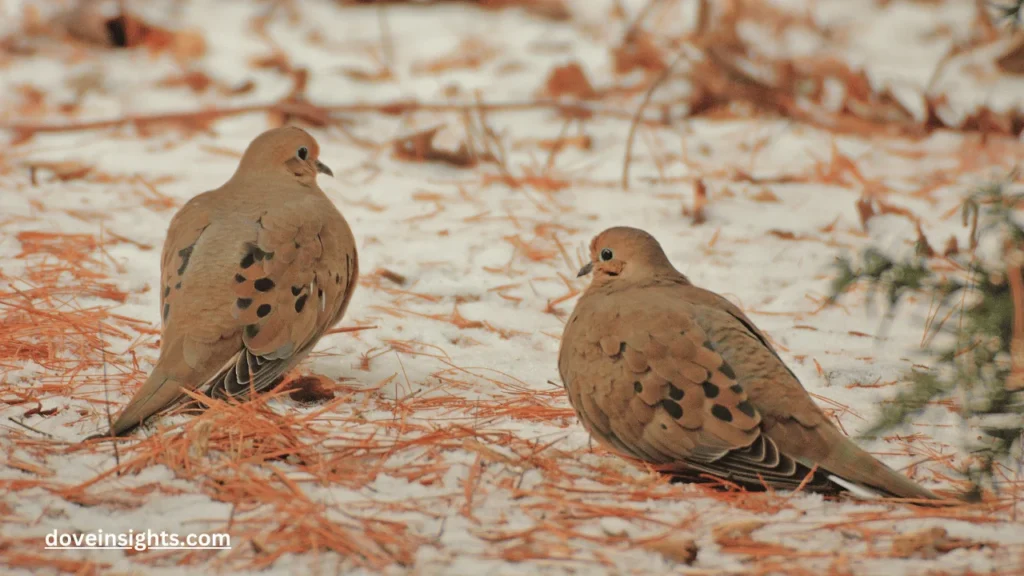
In today’s world, the belief that mourning doves bring good luck still resonates with many. While some people may view these birds with awe due to their natural beauty and peaceful nature, others see them as symbols of guidance and divine protection.
In modern spirituality, animals are often thought to carry specific messages, and for many, mourning doves represent a powerful force of positive energy.
In fact, the mourning dove has become a modern-day symbol for healing and new beginnings. Whether it’s an individual seeking to attract good fortune or a couple embarking on a new journey together, the sight of a mourning dove can bring a sense of reassurance and comfort.
The idea of “good luck” in contemporary society has evolved, and for many, the mourning dove represents more than just fortune—it represents hope, healing, and the belief that better things are ahead.
Conclusion:
In conclusion, mourning doves have earned their place as symbols of good luck, peace, and spiritual connection in many cultures. Whether through their association with divine peace, their role in folklore, or their calming presence in nature, mourning doves continue to be seen as bearers of good fortune.
While science may not attribute mystical powers to these birds, their positive impact on the environment and the deep symbolism they carry in human culture suggest that they are indeed linked to hope and blessing.
So, the next time you see a mourning dove, take a moment to appreciate the good energy it brings. It might just be a reminder that better days are ahead, and that good luck—in its own quiet, peaceful way—is already on its way.
FAQ’s
Are mourning doves a sign of good luck?
Yes, many cultures and spiritual beliefs associate mourning doves with good luck, peace, and hope. Their presence is often interpreted as a sign of positive change or divine blessing.
What do mourning doves symbolize in different cultures?
Mourning doves symbolize peace, love, and healing in many cultures, including Native American traditions, Christianity, and European folklore.
Do mourning doves bring good fortune to people?
While there is no scientific evidence to support the idea that mourning doves bring good fortune, many people feel that seeing a mourning dove brings a sense of hope and positive energy.
Can mourning doves be a sign of new beginnings?
Yes, mourning doves are often seen as symbols of new beginnings and renewal, especially during times of personal change or after difficult periods.
Are mourning doves associated with love and relationships?
Yes, mourning doves are often linked to romantic love and lasting relationships, especially due to their monogamous nature and their peaceful, serene presence.
What does it mean when you see a mourning dove?
Seeing a mourning dove may symbolize a time of peace, healing, or new opportunities. It is often interpreted as a positive omen or a reminder that things will improve.

